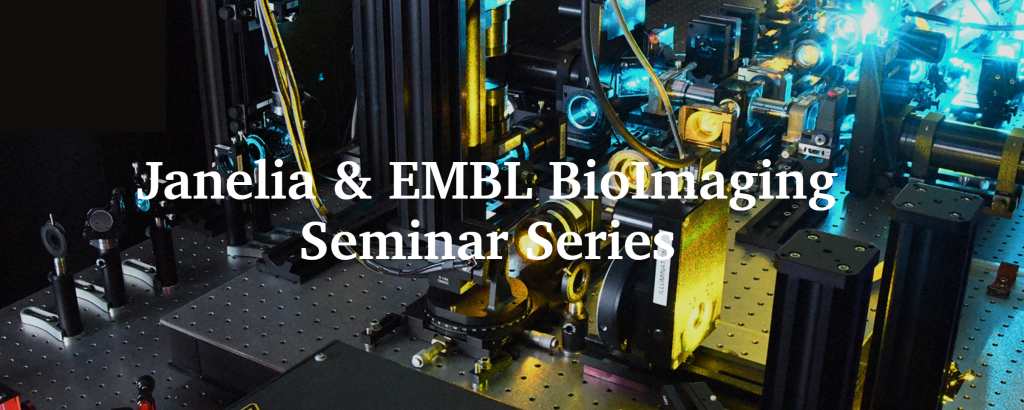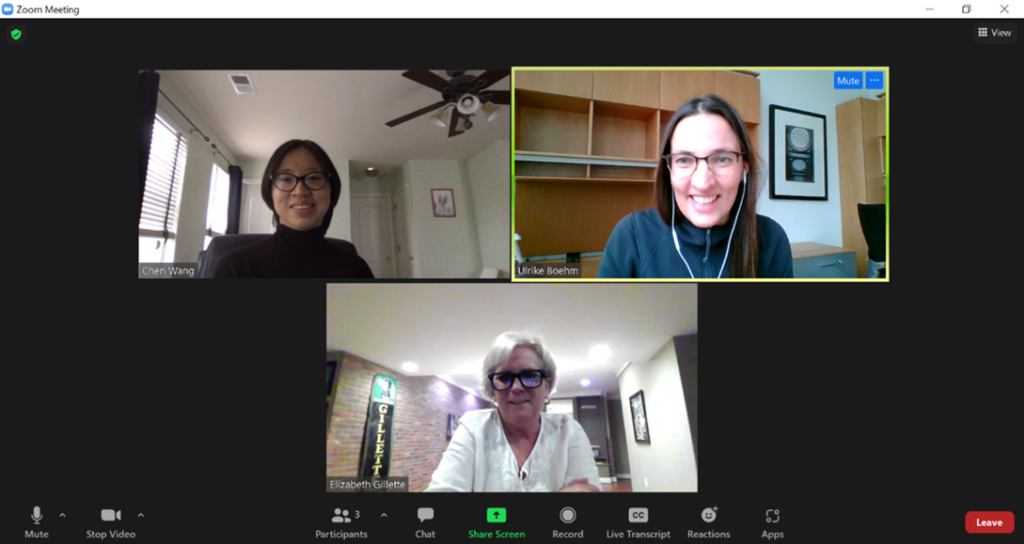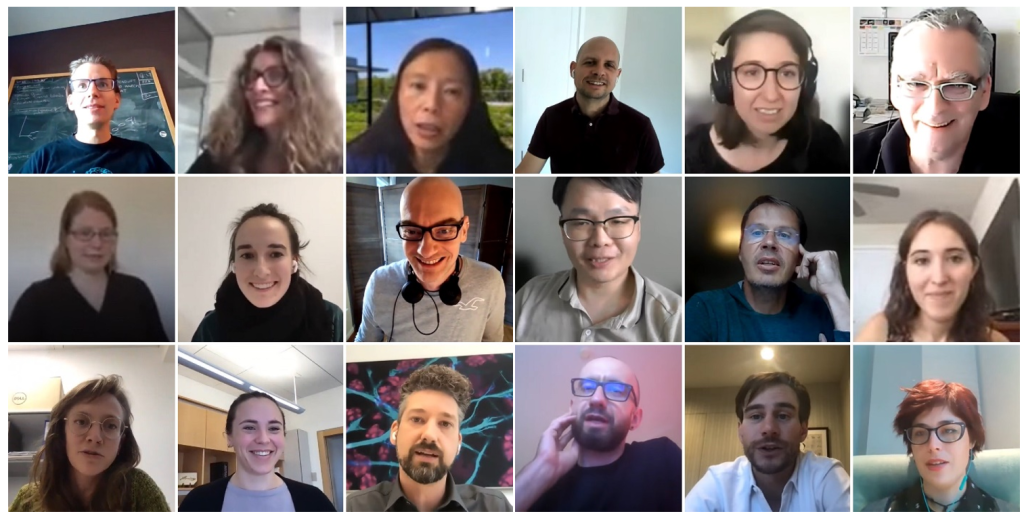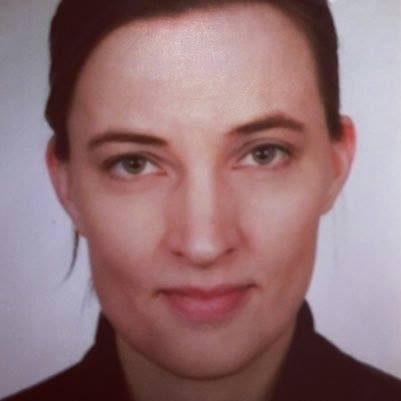Janelia+EMBL BioImaging Seminar Series: How We Started a Successful Seminar Series during the Pandemic
Posted by Ulrike Boehm, on 25 January 2022

Most of us can still remember the stressful and uncertain times in March 2020 when almost the entire world went into a shutdown with the fast spread of COVID-19, whose risks were unknown at that time. With the lockdown and the subsequent implementation of a tiered system that only allowed a very limited number of employees to physically enter the Janelia campus, our entire event calendar was almost emptied. Conferences, seminars, and boot camps were canceled and postponed, as we all waited patiently for a return to campus within a few weeks. Oh, boy! Were we naïve!
What many of us thought would only be a short intermezzo is still impacting our lives to this point almost two years later. Fortunately, the situation is less nebulous now, which can be attributed to the intense and rapid insights that the scientific community has gained over the last months and the subsequent development of vaccines. Still, the early months, in particular, were very stressful. But what is the best medicine against stress in uncertain times? That is right, distraction or, even better, scientific distraction. And what better way to distract one’s mind than listening to and discussing insightful presentations from speakers from around the world who suddenly were only one Zoom call away.
Armed with this idea, I approached Chen Wang (Research Specialist) and Elizabeth Gillette (Lab Administration Specialist) a couple of days into the shutdown. At the time both were in charge of Janelia’s Optical Interest Group (OIG). The OIG connects scientists with a common interest in optical imaging tools. It was launched by Kaspar Podgorski, John Macklin, Chen Wang, and Elizabeth Gillette in 2019 and is supported by Philipp Keller and his lab.
Chen and Elizabeth were immediately interested in continuing their OIG seminar series in a virtual format.

But that was just the beginning of our pandemic success story. What started as a virtual internal seminar series in March 2020 with 10 to 15 participants metamorphosed within a couple of months into two very successful seminar series whose recordings are now shared with the world.
The Janelia+EMBL BioImaging seminar series (50+ participants) and the Educational Lecture series (25+ participants) hosted together with European and Australian research institutions, respectively, currently reach more than 500+ microscopy enthusiasts worldwide on HHMI’s YouTube channel. Both seminar series now foster exchange and collaborations between our respective institutions and strengthen the microscopy literacy of the global microscopy community due to their open science nature. Furthermore, we were able to widen the scope of the OIG with these two new seminar series from a sole focus on optics and hardware development to image analysis and dye/sensor development.
In the following, I will provide you with more insights into the formation of the EMBL+Janelia BioImaging seminar series, the challenges we had to overcome, and the goals we have for the future of our seminar series.
How it started
Once Chen, Elizabeth, and I agreed to host external speakers during the pandemic, we reached out to Janelia’s AV engineers, Matt Staley, and John Rappole, since none of us were at that point experts in hosting and editing virtual events. We decided to stick to the “meeting format” in Zoom rather than the “webinar format” to allow maximum interaction between speakers and participants. Furthermore, we made ourselves familiar with the editing capabilities of Panopto, Janelia’s video content management software, with the support of Alex Fadeyev. Additionally, we received help with logistical questions from Janine Stevens and from Hazel Meda, who designs and updates our monitor announcements. Meghan Beamish and Ryan Powell helped us set up an internal event page and a page on janelia.org, respectively.
Two weeks after Janelia limited the number of employees who could enter the building, we started with a new virtual format of the OIG seminar series, kicking off with a one-hour presentation by Technion’s Yoav Shechtman, followed by presentations by Sara Abrahamsson (UC Santa Cruz), Martin Booth (University of Oxford), Joyce Poon (Max Planck Institute), Edward Cohen (Imperial College London), Chris Xu (Cornell University), Giuseppe Vicidomini (Italian Institute of Technology), Robert Prevedel (EMBL), Loic Royer (CZ Biohub), Allison Squires (University of Chicago), Jerome Mertz (Boston University), Ulrike Endesfelder (Max Planck Institute), Marcel Mueller (Bielefeld University), Joerg Bewersdorf (Yale University), Alipasha Vaziri (The Rockefeller University), Adam Charles (Princeton University/Johns Hopkins University), and Hari Shroff (NIH). Most recordings can be found on Janelia’s internal video portal.
From April to the beginning of August, we hosted (almost weekly) an external speaker, which Janelians have very well received. However, we realized during the summer of 2020 that we needed to change our format due to Janelia’s slow reopening and, therefore, a noticeable reduction in participation. Furthermore, during that time, we had received external requests to share the recordings of our seminar beyond Janelia’s internal video portal. Based on this development and because of a follow-up discussion with one of our speakers, EMBL’s Robert Prevedel, we finally decided to restructure our seminar series into its current format, the Janelia+EMBL BioImaging seminar series. Robert expressed his admiration for the OIG seminar series we managed to keep alive during the pandemic and mentioned that the EMBL’s Microscopy Optics and Image Analysis Interest Group (MOIA) and Janelia’s OIG should join forces, which we finally did in September 2020.
How it’s going
Since September 2020, the MOIA spearheaded by Robert Prevedel, Christian Tischer, and Dimitri Kromm, and the OIG spearheaded by Chen Wang, Elizabeth Gillette, and me, organize monthly alternating presentations with a focus on hardware and dye development and image analysis between scientists of both of our institutions at the European Molecular Biology Laboratory (EMBL) and the Janelia Research Campus, respectively. We all meet twice per year to schedule seminars for the following six months to organize the seminar series.
To date, we have organized 19 lectures, kicked off by former Janelian Kaspar Podgorski with “How programmable microscopes can improve activity imaging.” Other featured presenters were Anna Kreshuk (EMBL), Helen Farrants (Janelia), Yan Zhang (Janelia), Claire Deo (EMBL), Stephan Saalfeld (Janelia), Lina Streich (EMBL), Alison Tebo (Janelia), Jonas Ries (EMBL), Stephan Preibisch (Janelia), Virginie Uhlmann (EMBL), Timo Zimmermann (EMBL), Isabel Espinosa Medina (Janelia), Adrian Wolny (EMBL), Carsen Stringer (Janelia), Nicola Gritti (EMBL), plus three special presentations by Jerome Mutterer (Université de Strasbourg), Wei Ouyan (KTH Royal Institute of Technology, Stockholm), and Nicholas Sofroniew (CZI).

Each session is not only available on Janelia’s internal video portal, but also posted on Howard Hughes Medical Institute’s YouTube channel by Ryan Powell and is, therefore, accessible to the global microscopy community.
Keeping the seminars on a monthly instead of a weekly schedule turned out to be the right move to keep the number of participants high. In addition, we added “Meet the Speaker” sessions this summer (suggested by EMBL’s Christian Tischer) to increase the interaction between our institutions. During these sessions, the audience now has 30 extra minutes to ask the speaker more in-depth questions, e.g., how to use a specific technique, dye, or algorithm. What started as an experiment was very well received and has become a component of every seminar.
By the close of 2021, we recruited Stephan Preibisch and Alison Tebo as advisors for the seminar series; they will help us in the future to identify suitable speakers from the field of dye development and image analysis at Janelia.
What’s next
Due to its massive success (500+ views on YouTube per presentation), we will continue the Janelia+EMBL BioImaging seminar series in 2022 – again in the virtual format, and then hopefully more in-person sessions in a hybrid format such that EMBL scientists can still participate. We may need to pivot the structure of the seminar series at a certain point in the future again based on feedback we receive from the participants and by monitoring the audience engagement along the way. But for now, our upcoming talks will be given in the same format by Karel Svoboda (Allen Institute) in January and Alipasha Vaziri (Rockefeller University) (in-person!), and Carlo Bevilacqua (EMBL) in February.
Besides the Janelia+EMBL BioImaging seminar series and the Educational Lecture series, the OIG plans to organize bioimaging and hardware hackathons, microscopy-focused Journal Clubs, and discussion sessions.
Concluding remark
I hope that the story of our seminar series inspires you to set up similar events at your institution to bring together microscopy and imaging enthusiasts. As you have seen, almost nothing works right from the start and might need minor or major adjustments along the way. But setting up community events is always very fun and super rewarding.
Acknowledgments
The entire OIG team would like to thank all speakers who have already presented their research at our seminar series and also everyone who has helped to realize the virtual seminars over the last couple of months.
Thank you, Robert Prevedel, Christian Tischer, Dimitri Kromm, Kaspar Podgorski, Anna Kreshuk, Helen Farrants, Yan Zhang, Claire Deo, Stephan Saalfeld, Lina Streich, Alison Tebo, Jonas Ries, Stephan Preibisch, Virginie Uhlmann, Timo Zimmermann, Isabel Espinosa Medina, Adrian Wolny, Carsen Stringer, Nicola Gritti, Jerome Mutterer, Wei Ouyan, Nicholas Sofroniew, Yoav Shechtman, Sara Abrahamsson, Martin Booth, Joyce Poon, Edward Cohen, Chris Xu, Giuseppe Vicidomini, Loic Royer, Allison Squires, Jerome Mertz, Ulrike Endesfelder, Marcel Mueller, Joerg Bewersdorf, Alipasha Vaziri, Adam Charles, Hari Shroff, Matt Staley, John Rappole, Alex Fadeyev, Janine Stevens, Hazel Meda, Meghan Beamish, Ryan Powell, Debra Speert, and Sarah Moorehead.
My thanks also go to Chen Wang and Elizabeth Gillette for their incredible teamwork over the last one and a half years – I enjoyed our collaboration tremendously.
.

Ulrike Boehm
Research Specialist
HHMI | Janelia Research Campus
Ashburn, VA, USA


 (2 votes, average: 1.00 out of 1)
(2 votes, average: 1.00 out of 1)
